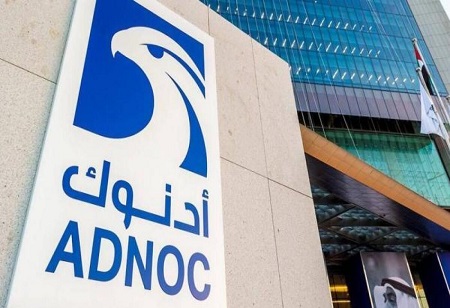
UAE Based ADNOC To Supply Full Crude Volumes To Asian Buyers In July

 The Abu Dhabi National Oil Company (ADNOC) has informed at least three buyers in Asia that it will supply full contractual volumes of crude in July, steady from the previous month.
The Abu Dhabi National Oil Company (ADNOC) has informed at least three buyers in Asia that it will supply full contractual volumes of crude in July, steady from the previous month.
But ADNOC has informed the term buyers that it will load 5% less crude in May, the minimum operational tolerance, the people said, reflecting the additional cut announced last month by the Organization of the Petroleum Exporting Countries and their allies, a group known as OPEC+.
The Abu Dhabi National Oil Company (ADNOC) has advised at least three Asian importers that it will supply all contracted volumes of crude in July, unchanged from June according to sources.However, ADNOC has informed the term purchasers that it will load 5% less crude in May than is required by operational tolerance, reflecting the additional cut that OPEC+, also known as OPEC+, declared last month.
The state-owned oil corporation of the United Arab Emirates is called the Abu Dhabi National Oil corporation, or ADNOC. By production, it is the twelfth-largest oil firm in the world.[4] The business will boost its oil production capacity to 5 million bpd by 2030 from its current capacity of about 4 million bpd as of 2021. It is the biggest oil firm in the United Arab Emirates.
Throughout the 1990s, ADNOC's production remained essentially constant at 2.5 million barrels per day. In 2008, it was 2.9 mbpd. Although its financial indicators are difficult to assess as the company has been described as secretive, it has also been described as efficient and well managed.
ADNOC is one of the few oil companies in the world to increase oil production despite mounting pressure to do so due to climate change. The company claims this is necessary because oil and gas continue to drive the global economy and to avoid price shocks in natural gas and oil brought on by premature investment cuts. ADNOC is considering the large-scale production of hydrogen fuel as a clean energy fuel to replace oil exports in an effort to adapt to climate needs.

